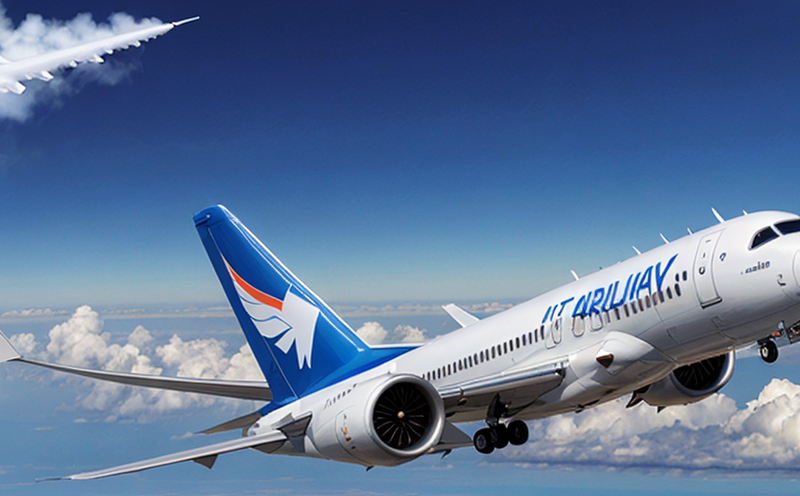NASA-STD-8719 Safety-Critical Software Validation Testing
The NASA-STD-8719 safety-critical software validation testing is a stringent and comprehensive approach to ensure the reliability, robustness, and integrity of software used in aerospace and aviation applications. This standard is particularly critical for systems where failure could lead to severe consequences, such as mission failure or loss of life.
Developed by NASA, this standard provides guidelines for the validation and certification of safety-critical software. The testing process involves a series of rigorous procedures designed to identify potential errors, vulnerabilities, and weaknesses in the software before it is deployed in real-world applications. Compliance with NASA-STD-8719 ensures that the software meets the highest standards of safety and reliability.
The validation testing under this standard typically includes multiple phases: requirements analysis, design review, code inspection, unit testing, integration testing, system testing, and finally, mission-critical testing. Each phase is designed to progressively refine and verify the software, ensuring that it operates as intended in all expected scenarios.
One of the key aspects of this testing is the focus on fault tolerance and error handling. The software must be capable of detecting and recovering from errors without compromising mission-critical functions. This ensures that even if an anomaly occurs, the system can continue to operate safely until a safe state is reached.
The use of NASA-STD-8719 also emphasizes the importance of continuous monitoring and validation throughout the software lifecycle. This includes regular reviews, updates, and revalidations as new requirements or changes are introduced. The standard provides guidelines for documenting these processes to ensure transparency and traceability.
Another critical element is the emphasis on human-in-the-loop systems. These systems require rigorous testing to ensure that they can operate safely even in the presence of unexpected inputs or conditions. This includes testing under simulated failure modes, stress tests, and other scenarios designed to push the software to its limits.
The NASA-STD-8719 standard also covers the integration of safety-critical software with other components of the system. This ensures that the software functions correctly not just in isolation but as part of a larger system. The testing process includes verification of interfaces, data flow, and communication protocols to ensure seamless operation.
Compliance with NASA-STD-8719 is essential for aerospace and aviation companies looking to meet stringent safety standards. This standard helps build trust and confidence in the software used in these critical applications. By adhering to this standard, organizations can demonstrate their commitment to quality, reliability, and safety.
Additionally, compliance with NASA-STD-8719 can provide a competitive advantage by ensuring that your products meet or exceed industry standards. It also facilitates smoother interactions with regulatory bodies and potential partners, reducing the risk of delays due to non-compliance.
Why It Matters
The importance of safety-critical software validation testing cannot be overstated in aerospace and aviation. These industries operate under some of the most stringent safety regulations globally, and any failure can have catastrophic consequences. By ensuring that critical software is thoroughly validated, NASA-STD-8719 helps prevent such failures.
The standard focuses on identifying potential issues early in the development process, reducing the likelihood of costly reworks or recalls later. This not only enhances the safety and reliability of the products but also improves overall efficiency by minimizing delays and errors.
Furthermore, compliance with NASA-STD-8719 can significantly reduce liability risks for aerospace companies. By demonstrating adherence to industry best practices, organizations can mitigate legal and financial risks associated with product failures or accidents. This is particularly important given the high stakes involved in aviation safety.
Eurolab Advantages
- State-of-the-art facilities equipped to conduct comprehensive testing per NASA-STD-8719 guidelines.
- Experienced engineers and technicians with deep expertise in aerospace and aviation software validation.
- Access to specialized tools and equipment necessary for rigorous fault tolerance and error handling tests.
- Comprehensive documentation services, ensuring full traceability of all testing processes and results.
- Flexible service offerings tailored to meet the unique needs of each client.
Why Choose This Test
- Ensures compliance with NASA-STD-8719, a globally recognized standard for safety-critical software validation.
- Provides robust testing of fault tolerance and error handling capabilities in critical systems.
- Facilitates smoother regulatory approval processes by meeting stringent industry standards.
- Promotes continuous improvement through regular reviews and revalidations throughout the lifecycle.





